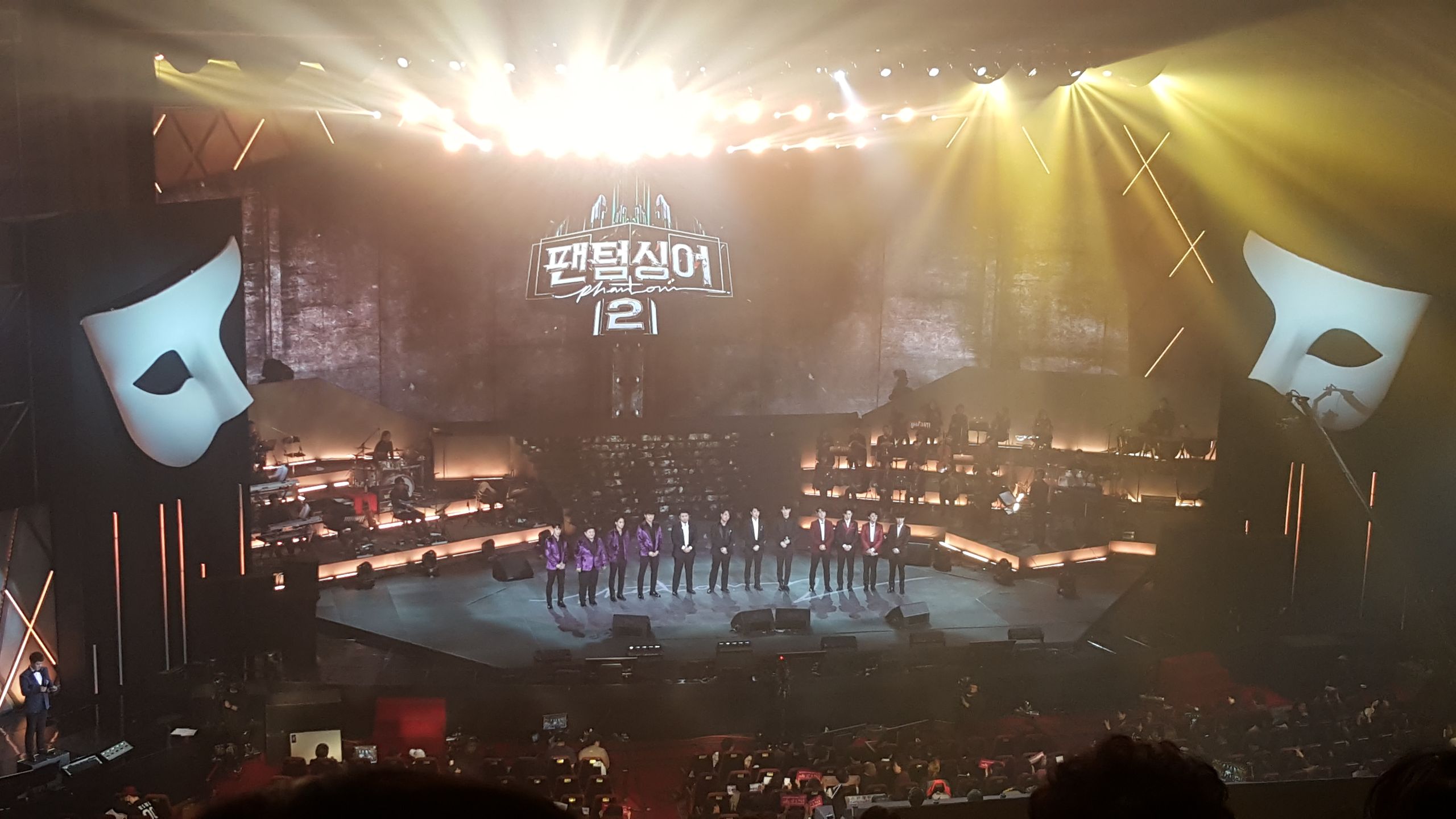An unprecedented music show premiered on JTBC this time last year, calling for singers of a different type as compared to those of existing shows. Named Phantom Singer, the show was the first to feature the crossover genre. Also, compared to the preceding trend of music shows that usually awarded the single, surviving winner, Phantom Singer aimed to gather individuals, form them into groups of four, and award the winning team. While the show was bound to draw viewers thirsty for a new genre on TV, it was an attractive deal to the singers as well; the winning team would be granted a contract with one of the biggest classical management companies, Arts&Artists, as well as a guaranteed nationwide tour concert. The first season, which ended this January, was a huge success, with many singers on the show gaining a considerable amount of popularity with a surge of classical and crossover concerts that wished to bring them to the stages. This called for a follow-up season, with high demand from both the audience and potential candidate singers.
Phantom Singer 2 premiered a little bit earlier than expected, in just over half a year after the end of the first season. The competition got much fiercer; the success of the first season had motivated many singers — some already with very stable and commendable careers — to step up to the challenge. Many classical singers and musical actors applied, along with pop singers. Among these people were some with interesting backgrounds. One was a traditional singer, another a chemical engineer, and another a sports news anchor. Despite their unusual careers, they advanced to the round of 32 alongside professional singers and actors. The show had since then gathered a lot of attention, and the number of applications to watch the finale live — with three teams competing for the title —– exceeded 10,000. I was lucky enough to get a chance to attend the shooting of the live show.
On the day of the finale, hundreds lined up early outside the show venue, Grand Peace Palace at Kyung Hee University, to receive good tickets that were given out on a first-come-first-serve basis amongst the pre-selected people. Inside the hall, the audience was a testament to the power of Phantom Singer in attracting all generations. The audience consisted of people from those in their 20s to those in their 70s. With a shared feeling of excitement and anticipation for the performances and the results to be revealed, the show started off with the first song from team Edel Reinklang: the famous “Senza Parole” known for its grand harmonies. This was followed by team Miraclass singing “Who Wants To Live Forever” by Queen, a novel and successful attempt at a rock song in crossover style. The last team, Forestella, sang “Come Un Eterno Addio”, which was a pleasant surprise; it was a tango. All three teams were fully, if not overly, prepared and gave fantastic performances. It was apparent that they were giving it all they’ve got. The second round started, with the same first team singing “Non Riesco A Farti Innamorare”, a very masculine song featuring extremely high notes that gave chills. The second team offered a flawless rendition of “Feelings” by Il Divo, which was later considered one of the best performances of the night. Lastly, the third team wrapped up with “Il Mirto E La Rosa”, also very well prepared and delivered.

Although many audience members expressed their discomfort with the acoustics, which affected the balance in some stages, the finale show eventually wrapped up with an ensemble performance of a familiar tune, “Can’t Help Falling In Love”, by participants who missed the opportunity to advance to the finals. The winner was announced afterwards by MC Hyun-moo Jun. Forestella was the winner, followed by Miraclass, then Edel Reinklang. All three teams were celebrated and Phantom Singer 2 was officially over.
After witnessing the performances in person, I cannot help but agree that Phantom Singer was a brilliant idea. There definitely is value in delivering crossover music, a genre unfamiliar in Korea, to homes every week. Many are yearning for the next season, but I believe that there are two major obstacles in doing so. First, they would have to overcome the limitations in song selection. Many singers expressed their difficulty in choosing suitable songs for their teams as many great choices (amongst a limited number of crossover style music) were already featured on the show. This would be a major factor in considering whether airing a third season is viable. Second, the faulty live show acoustic system has to be solved. The acoustic problem during the live show was brought up from the first season, and had not been solved this season. If the producers wish to continue with a third season, it is essential that they overcome this matter. Overall, however, the show has brought about a new trend in music, and I hope that they learn from their shortcomings for another great season.

